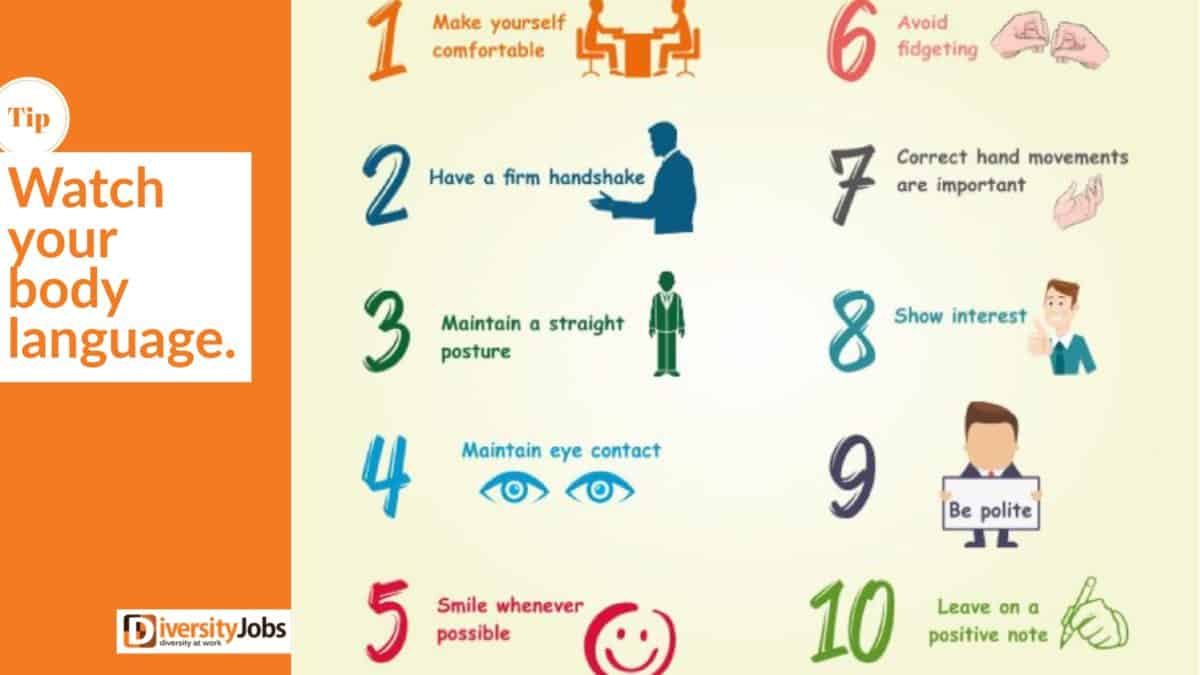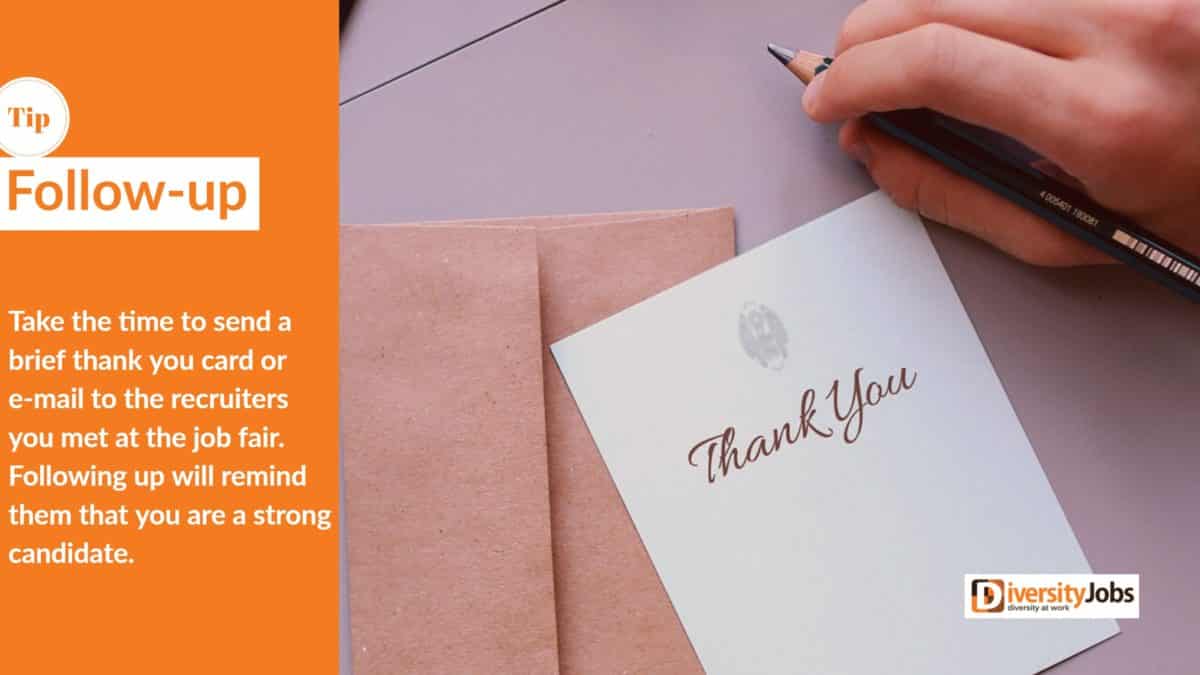So you’ve RSVP’d to an upcoming job fair. You may now be thinking How do I make the most of it?
Congratulations! Your priorities are in the right place. Preparation and forward-thinking will get you noticed. The number of talented job seekers at these events can be overwhelming, so we’ve prepared this guide to help you stand out!
PREPARATION
1 – Research
[mks_dropcap style=”letter” size=”52″ bg_color=”#ffffff” txt_color=”#000000″]U[/mks_dropcap]pcoming job fairs are announced online along with the employers who will be in attendance. Your job is now to discern which employers you intend to engage. Let me stress that word – employers. Plural. Do not make the mistake of thinking, I only want to work for Employer Z so I will only hand over my résumé to Employer Z.
[mks_pullquote align=”left” width=”300″ size=”16″ bg_color=”#1e73be” txt_color=”#ffffff”][mks_icon icon=”fa-hand-o-right” color=”#ffffff” type=”fa”] Pro Tip: If you do not see any open positions posted on an employer’s webpage, the company is likely hiring but may not have updated their listings. Research as well as you can about what the employer does and if you think it’s a fit, be prepared to hand over a résumé. Some jobs are not listed online as the employer may be interested in job fair candidates only. You may have a shot at a job not even listed![/mks_pullquote]
Your ambition as a job seeker may be present but that doesn’t mean your experience and skills are a match to the employer’s needs. Understand where you are a good fit based on research and do not limit your interest to one employer. It’s very common at our events to find healthcare employers also hiring for IT positions, or IT companies hiring for sales roles.
Go to the company’s website and browse through their job openings. Get an idea of what education, experience, and skills they expect to hire for any given role. This knowledge should be used to tailor your self-marketing efforts: résumé structure, talking points, and on-site interview expectations. Your background knowledge of an employer is everything.
2 – Résumé Updates
[mks_dropcap style=”letter” size=”52″ bg_color=”#ffffff” txt_color=”#000000″]Y[/mks_dropcap]our most professional self has to be summarized in one or two pages. Make sure your résumé is on point. Review and edit. Ask yourself, is my information concise? Is my language strong? Did I stay in the appropriate tense? Do I provide concrete examples of my accomplishments? If you need in-depth assistance for résumé writing, see the ‘resumes’ section in our job search guide or contact our team for recommendations.
[mks_pullquote align=”right” width=”300″ size=”16″ bg_color=”#1e73be” txt_color=”#ffffff”] [mks_icon icon=”fa-hand-o-right” color=”#ffffff” type=”fa”] Pro Tip: Did you graduate from a college, university or graduate school? Do yourself a favor and contact your alma mater’s career services office. Most colleges and universities provide résumé services to their alumni for free, in-person or email. Just don’t ask for help the day of the fair. Résumés take time to review, even for professionals. Be proactive and make sure you’ve given yourself, or someone else, the proper time to review your materials.[/mks_pullquote]
Ensuring that your résumé is updated and edited before attending any job fair is imperative. Many career fairs provide the attending employers with a searchable database where they can access your résumé online. Make sure to upload your resume for the specific event, and also expect to make several hard copies on plain copier paper.
Here is an estimate of copies needed:
- At least one copy for each top-priority employer based on your research.
- 4-10 copies for “middle-fit” employers.
- 5 copies for chance encounters and unknown employers.
3 – Talking Points
[mks_dropcap style=”letter” size=”52″ bg_color=”#ffffff” txt_color=”#000000″]B[/mks_dropcap]e prepared to speak up about yourself while realizing it’s not about you. Use big-ticket sales techniques to stand out. You should be prepared to speak about the employer as easily as you should be able to express your own background and experiences. How would you be of benefit to the business and its mission? What value do you bring? A proactive candidate should nail these standard talking points:
- Introduce yourself (first AND last name) with a handshake.
- Based on your research, make a brief statement on what you understand the employer is looking for in a candidate.
- Briefly verbalize your experience or education (whichever area is your strongest lead) and indicate how you think you might be a good fit.
- Ask if the representative would like a copy of your résumé.
- Ask for a business card and indicate you’d like to learn more about the company.
If you are encouraged by the representative to apply, listen to instructions. If the rep advises you to follow-up with them via phone or email, do so.
4 – Interview Preparation
[mks_dropcap style=”letter” size=”52″ bg_color=”#ffffff” txt_color=”#000000″]A[/mks_dropcap]t job fairs, it is not uncommon for candidates to be pulled aside for an interview, or to be scheduled for an interview at a later date. If it’s been a while since you’ve interviewed, there are standard questions you should practice to mentally prepare yourself. Make sure you do more interview preparation than any other candidate. Modify the questions below to fit your experience and industry and you will build interviewing competence.
- Tell me about yourself.[mks_pullquote align=”right” width=”300″ size=”16″ bg_color=”#1e73be” txt_color=”#ffffff”][mks_icon icon=”fa-hand-o-right” color=”#ffffff” type=”fa”] Pro Tip: Talk. Out. Loud. When you practice your questions, literally ask yourself the question out loud and provide the answer out loud. Practicing in your head does not count. You need to HEAR the words so that questions and responses will not sound strange to you in a high stakes situation. The more you practice out loud, the less likely you are to stumble during the interview. Of course, you can practice with someone else too.[/mks_pullquote]
- Why are you interested in working for us? OR Why are you interested in this position? OR What do you know about the company?
- What can you bring to this position that someone else can’t?
- Give me an example of taking the initiative.
- Tell me about a difficult situation (professional, not personal) in which you overcame the problem or found a solution?
- Tell me about your strengths and weaknesses.
- How would a co-worker, supervisor, or director describe you?
- Where do you see yourself in five years?
You know your industry. Think hard and get creative with your practice questions. The more in-depth and specific to the job you can make them, the better prepared you will be. The question(s) that cause you the most anxiety are the ones you need to work on the most.
5 – Dress
[mks_dropcap style=”letter” size=”52″ bg_color=”#ffffff” txt_color=”#000000″]P[/mks_dropcap]rofessional dress is expected. All clothes worn should be clean and wrinkle-free. Tend to your personal hygiene: shower, shave and brush your teeth. Don’t forget the deodorant!
Clothes – Slacks or professional skirts with pockets is preferable (you will be picking up a lot of business cards). Wear a long-sleeved, button-down shirt or blouse. If your dress shirt is sheer, wear an undershirt. Ties are acceptable; consider skipping a jacket for a business casual look or the reverse: jacket and no tie. Shoes should be professional, clean, low-heeled, and are traditionally not open-toed.
You’ve heard the old adage: Dress for the job you want, not the job you have. You don’t have to out-dress everyone but understand that how you appear will impact a recruiter’s first impression of you.
Accessories – Minimal jewelry: a watch, a ring or two, a pair of earrings, and that’s about it. [mks_highlight color=”#eeee22″]Representatives are attracted to the streamlined look.[/mks_highlight] Look as unencumbered as possible: no tote bags, luggage, bulk purses, or wheeled carrier carts. Carrying accessories should include a padfolio (a manila folder works too) that can hold your résumé, a writing pad, and a pen. If you have your own business cards, then a card holder is also appropriate. One hand holds your padfolio, the other should be free to shake hands. Remove excess facial piercings and cover tattoos.
Additional – Take it easy on the cologne and perfume. Scents are amplified in packed places. Too much scent can leave a negative impression and that defeats the purpose. Facial hair should be groomed. Makeup is optional but should not be elaborate if worn. The goal is to have recruiters remember your face, not an untidy beard or ornate makeup.
ACTION
If you’ve heeded our advice above, you will have confidence. Nervous? Sure. But confident, nonetheless. Walk and talk with that confidence. Employer reps are trained to zero in on the attendees that look purposeful in their walk and presentation.
- Walk with intent.[mks_pullquote align=”right” width=”300″ size=”16″ bg_color=”#1e73be” txt_color=”#ffffff”][mks_icon icon=”fa-hand-o-right” color=”#ffffff” type=”fa”] Pro Tip: Finding a job is a job. Never stop applying. Never stop attending career fairs. Keep on top of your correspondence with every recruiter you meet. And remember, preparation is key.[/mks_pullquote]
- Speak with clarity.
- Use your talking points.
- Don’t forget to shake hands.
- Meet your goal. Do not leave until you handed out every résumé you intended to.
REACTION
Do not be passive. Follow-up with every recruiter that handed you a business card, and do not forget to personalize your email correspondence. No generic templates. Refer to the conversation you had with the representative in your email. Remember, she/he also met with dozens of other candidates, so remind them about something specific that only you might have highlighted. Mention your excitement about the company and their open positions. If you scheduled an interview at the fair, reference that and state to the rep that you look forward to the interview.
For comprehensive advice on the entire job search process, read our complete guide to landing a job at a great company or visit our career advice hub.






